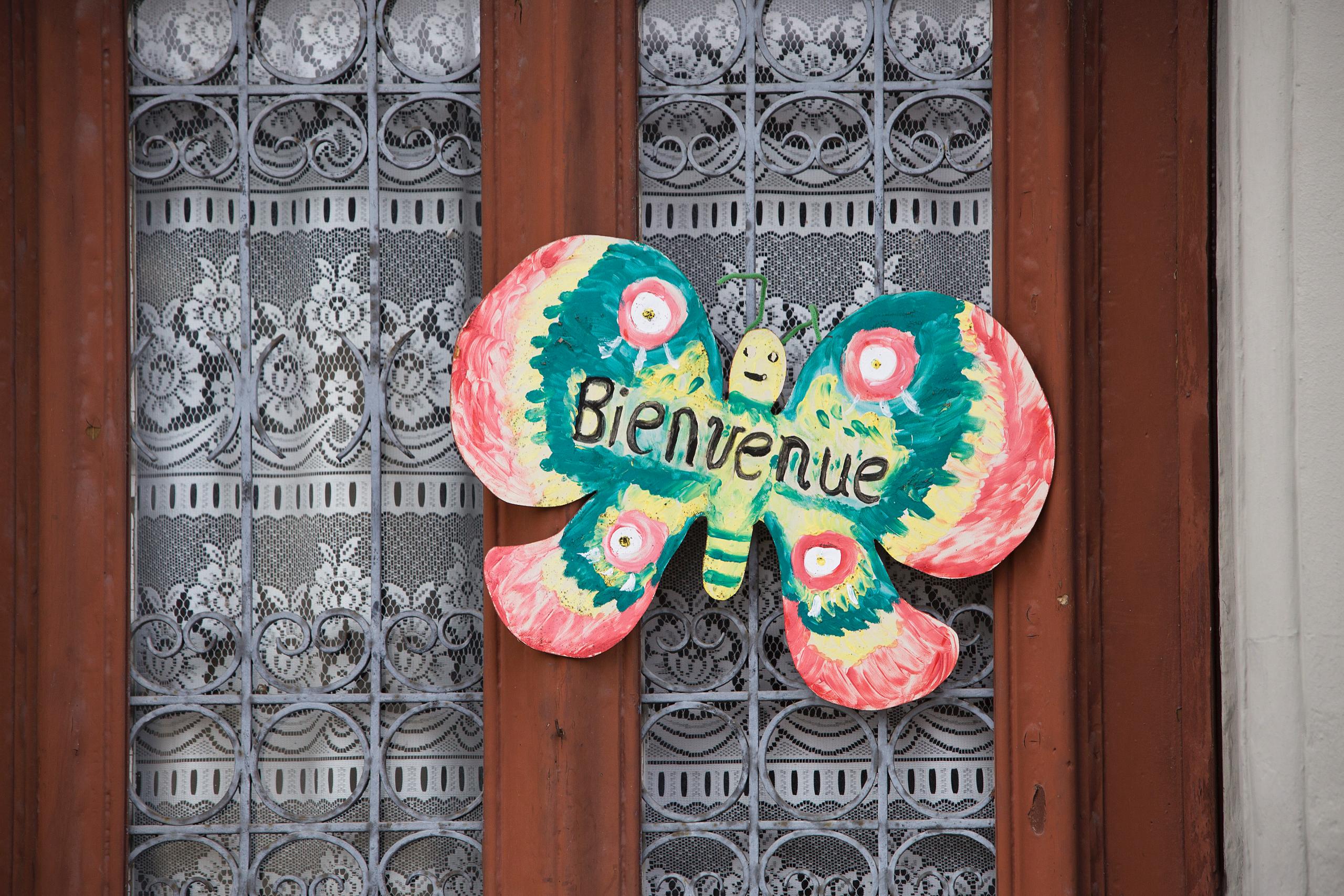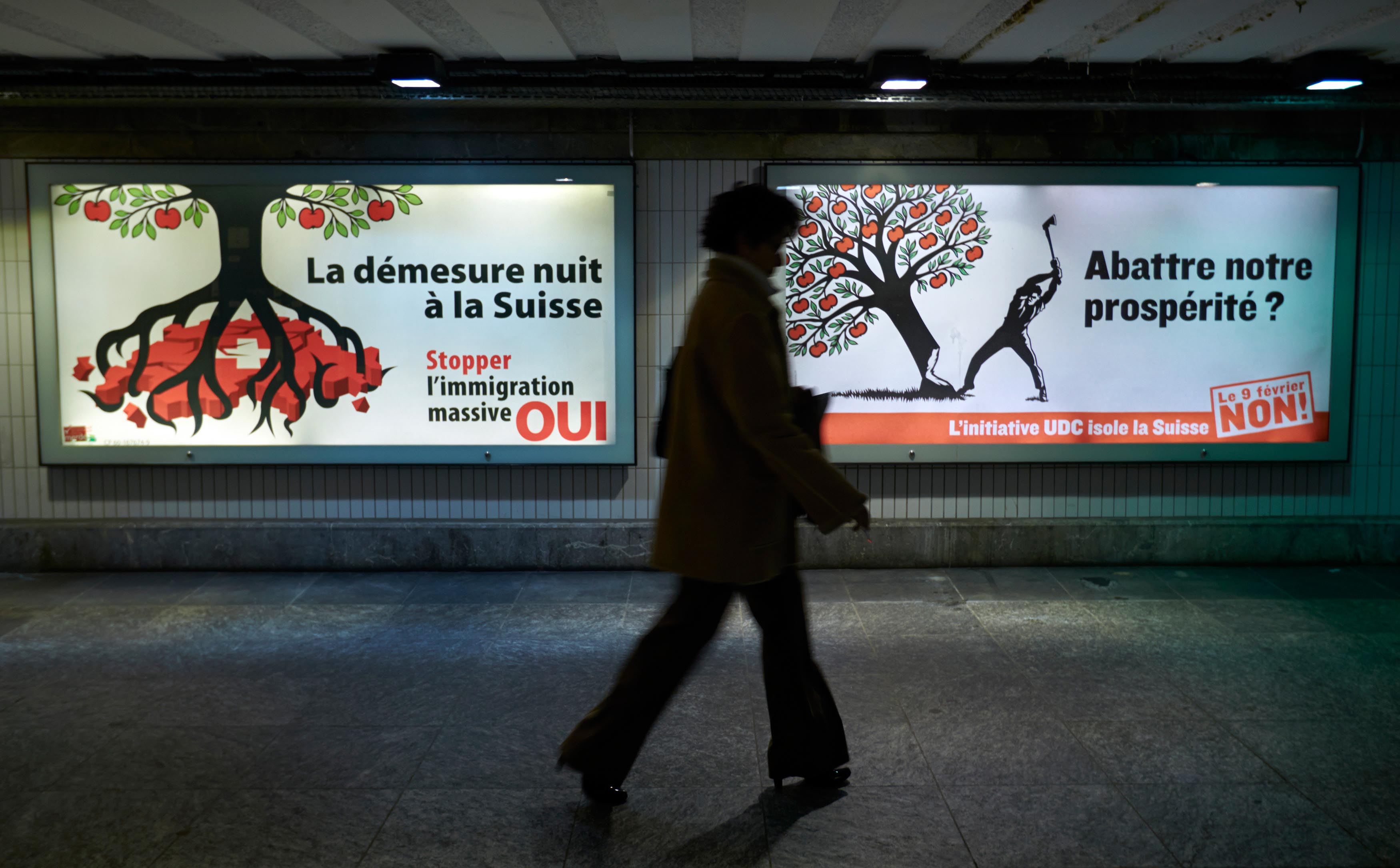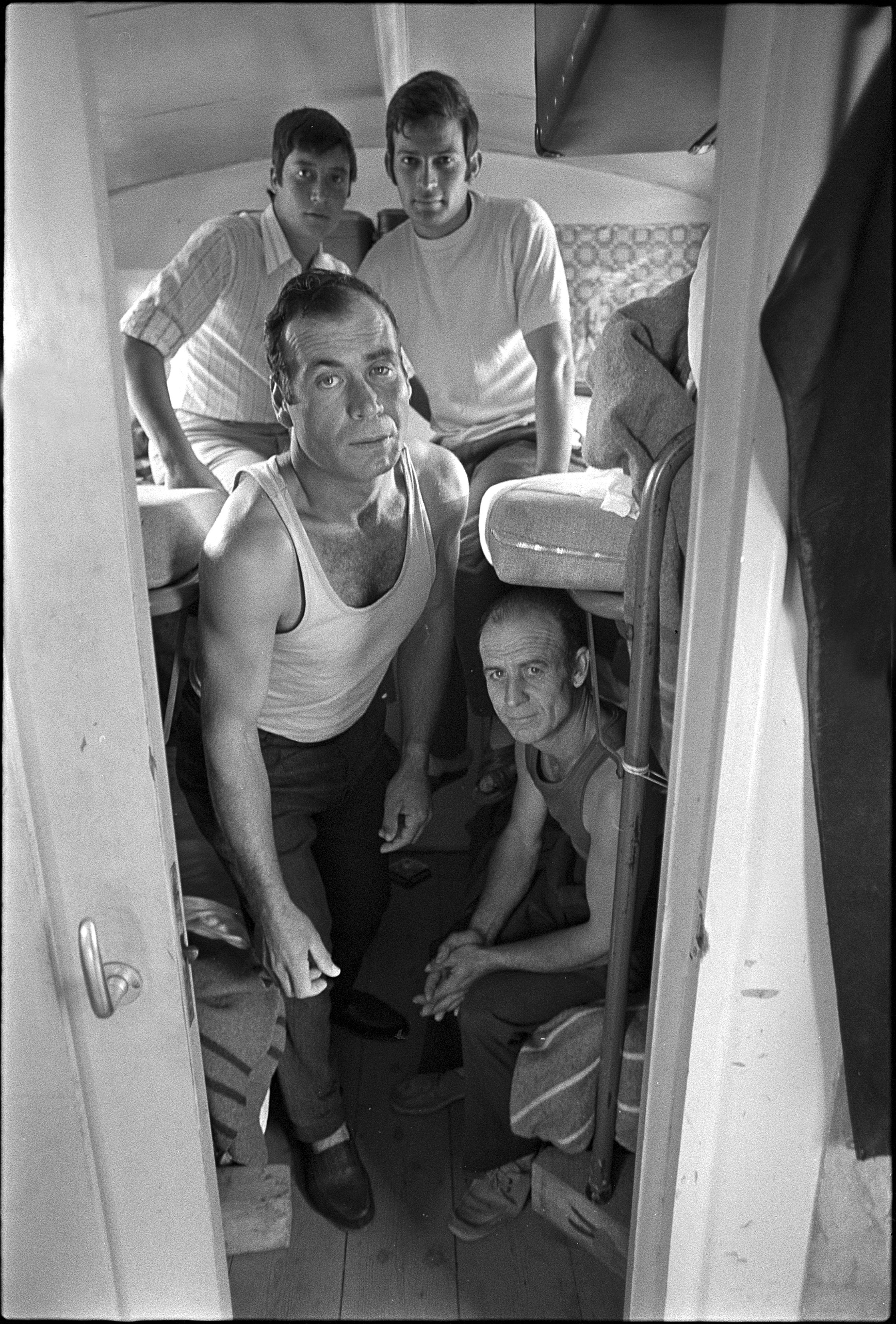An immigration tale of two villages

Two communes stood out after the Swiss narrowly approved an anti-immigration initiative on February 9, 2014 – one overwhelmingly voting yes, the other overwhelmingly voting no. A year later, swissinfo.ch visited both to find out why.
Horrenbach-Buchen, in the furthermost reaches of canton Bern, cast the highest proportion of votes in favour of curbing immigration and re-introducing quotas for foreigners (94%); Lussy-sur-Morges, high above Lake Geneva, cast the lowest (19%). What differentiates these two small villages from one another, and why were their vote results so far apart?
No post office, no shops, no medical practice, no public transportation. The lone inn, far up the valley, is closed for the holidays. Horrenbach-Buchen, a German-speaking commune of 20 square kilometres, is situated in the shade of the Zulgtal valley, 2,000 metres above sea level. It is home to 264 people, the majority of whom live in farmhouses that are often far apart.
On February 9, 2014, 50.3% of the Swiss electorate voted in favour of an initiative to limit immigration. The initiative was most popular in Italian-speaking Switzerland, followed by German-speaking Switzerland. In contrast, the initiative was rejected by a majority of voters in French-speaking Switzerland.
The people’s initiative called for a reintroduction of immigration quotas. But the “yes” vote, if implemented, also puts Switzerland in possible violation of the free movement of people accord it has signed with the European Union.
Not a single pedestrian is to be seen on the snowy lane that leads through the two villages; cars are also rare. At the Horrenbach schoolhouse, the large classroom is deserted. Only six children enrolled in 2009 so it closed. Since then, the children have been driven to adjacent villages in a minibus.
The former schoolhouse has nevertheless remained the hub of village life. Instead of school desks, long tables have been lined up in the classroom for community gatherings or events. On the third floor is Urs Wandfluh, who has managed the commune single-handedly for the past 16 years.
‘Unnecessary’ immigration
Wandfluh knows every inhabitant of the community personally. “We’re a service business for the residents. I take care of the radio link contracts for the loggers working in the forest, I help people fill out their tax returns and other official forms, or I lend a hand if they want to switch health insurance providers. Many of our residents don’t have internet connections at home, so they can come here and use ours. They’re also allowed to make copies free of charge.”
Without the financial compensation scheme in Switzerland – in which wealthier communities transfer funds to needier ones – Horrenbach-Buchen would be deep in the red. Its tax revenues of CHF250,000 ($270,000) cover only about a quarter of the community’s expenditures.
Regarding the initiative to limit immigration, Wandfluh says Horrenbach-Buchen approved it virtually unanimously. “Every year, 80,000 immigrants, 20,000 new homes – people here were of the opinion that this is not necessary.”
If all these newcomers were to settle in one place, they would create one of the largest towns in a country where the biggest city, Zurich, has only about 370,000 inhabitants.

More
Horrenbach-Buchen – in a world of its own
Of these immigrants, hardly any are to be seen in the Zulgtal valley. Currently, only three live in Horrenbach-Buchen, all holding down steady jobs: a Dutch physical therapist, a Portuguese chauffeur and a German electrician. An abundance of empty apartments are available at low rents, while nature and cultivated landscapes stretch as far as the eye can see. There’s no trace of the “density stress” harked on by the pro-limits campaign.
Not so, according to Wandfluh. “We’ve been keeping an eye on the development taking place beyond our village boundary,” he said, pointing to the commune of Steffisburg, at the lower end of the valley and where the residents of Horrenbach-Buchen go to work, shop and attend school.
“This is growing at a fast pace and no one in the region is thrilled about that,” he said.
Cheap labour
Rosmarie Müller, the only woman in the five-member village council, spoke in a similar vein. Müller spent 20 years as a school teacher of arts and crafts. Today she works harder than ever at her husband’s dairy farming business. “It’s no bed of roses for people in agriculture whose holdings are under a certain size.”
The family enterprise is worried about falling milk prices and staying compliant with ever-stricter environmental and animal protection regulations handed down by the authorities. As a result of population growth, more and more cultivated land in the region is being cemented over – land which could easily be utilised for agriculture.
“In the end, the only land left for farming will be our steep slopes, which require a lot of manual labour that hardly anyone wants to do,” she said.
Without second jobs, the Müllers would not be able to make ends meet. The partners of two of their four adult children have been seeking employment in the wider region for a long time, without success.
“The more cheap labour coming from abroad, the less opportunity there is for locals,” she said.
Propaganda
Of the 125 voters who cast ballots in Horrenbach-Buchen, only eight voted against limiting immigration. Two of them, Heinrich Gartentor and his wife Christine Clare, live with their school-age children in the apartment above the empty classroom.
Gartentor is an internationally successful artist and Clare works with people who have psychological impairments. They moved to the alpine village six years ago.
Despite having utterly different backgrounds to the villagers, they feel anything but excluded and in fact are well integrated. Gartentor is part of the village fire department and a member of the school bus commission.

More
A look into Lussy-sur-Morges
“The people are conservative. They want to preserve the landscape and the community social structures and they want their children to have jobs,” he said by way of explaining the record vote to limit immigration. “The propaganda that foreigners will take away jobs influenced them.”
But, Gartentor said: “They have their hearts in the right place. They are modest people who have worked hard their entire lives. If someone in the community needs help, it is given without their even having to ask.”
Net contributor
It was in Lussy-sur-Morges that four out of five voters rejected the initiative to limit immigration, the highest proportion of no votes in the country. Pierre Jaberg, a retired flight engineer who has managed the 650-head French-speaking commune in canton Vaud since summer 2014, contributed to this record result.
“I am convinced that Switzerland cannot solve migration problems alone, but only together with the migrants’ countries of origin,” he said. “One way or another, the country is being overbuilt. The immigrants are not responsible for that.”
Just a few decades ago, Lussy-sur-Morges, on the sunny side of Lake Geneva, was still heavily agricultural. Today, only five farms remain and Lussy is now a village of commuters. “Most jobs are located outside the community,” Jaberg explained.
Exclusive villas are surrounded by spacious parks and gardens. A particularly secluded property was home to the daughter of the Greek shipping magnate Aristotle Onassis. “The property is still inhabited by Greeks,” said Jaberg, without specifying exactly who.
Lussy is also among the strongest net payers into the Swiss financial compensation scheme, which redistributes income from higher to lower wealth communities. This is in part due to the high tax revenues paid by Lussy’s wealthy inhabitants.
“We provide the canton with CHF850,000 for social welfare costs alone,” Jaberg said, despite only two of its residents being dependent on benefits.
High flyers
Foreigners make up about a fifth of Lussy’s population (the national average is 24%). Many work in the companies that have recently settled in the low-tax Swiss “La Côte”.
Iris Obermüller, a Bavarian who works in the life science industry, and her French husband feel “very welcome” in Lussy. Nice little touches – also on the part of the local authorities – make for good feelings among newcomers, said Obermüller.
Hugo Van Den Hombergh, originally from the Netherlands, has lived with his family in this scenic area for 12 years. He buys and sells real estate – “and not only to foreigners”.
Van Den Hombergh finds the February vote results inexplicable. Switzerland, he said, owes its competitiveness above all to its internationally active firms, for which many highly qualified foreigners also work.
In Lussy, even people working in agriculture voted against immigration limits, including vintner Michel Vulliamy. He is dependent on cheap labour from Portugal during harvest time. “The initiative with its quotas just creates problems for us,” he said.
Willi Steckeisen, who was director of the chamber for agriculture before retiring, voted against limits but expressed a certain amount of sympathy for the concerns of the other side.
“We cannot carry on forever like this,” he warned. “Otherwise in 246 years, according to my calculations, there won’t be a single square metre in Switzerland that is free. One can imagine the country with no agriculture and needing to import everything, but I don’t think that’s a good idea.”
Multicultural
Only 48 voters in Lussy cast ballots to limit immigration, Rolf Aecherli among them. Aecherli, a retired biotechnology engineer, is having lunch in the Café P’tit Pressoir, which was staffed by a Polish cook and a Portuguese waiter.
“What have the many new jobs that have been created in the region brought us?” he asked. “Absolutely nothing, except growing infrastructure costs.”
Anne-Hélène Fontannaz also has some understanding for the yes camp, though she herself voted against quotas. Fontannaz is involved in a charity project that makes it possible for penniless immigrants in populous areas around Lake Geneva to attend language courses.
“These immigrants cannot settle down in Lussy, because here villas with 1,000 or more square metres are built and there are no cheap three-room apartments for families of five to rent. In Lussy, no one comes into our gardens. Therefore, it was also easier to reject the initiative,” she said.
“If we had to take on migrants who had nothing to do all day because they were not allowed to work, then the vote result in the community might have been different.”
(Translated from German by Kathleen Peters)

In compliance with the JTI standards
More: SWI swissinfo.ch certified by the Journalism Trust Initiative













You can find an overview of ongoing debates with our journalists here . Please join us!
If you want to start a conversation about a topic raised in this article or want to report factual errors, email us at english@swissinfo.ch.